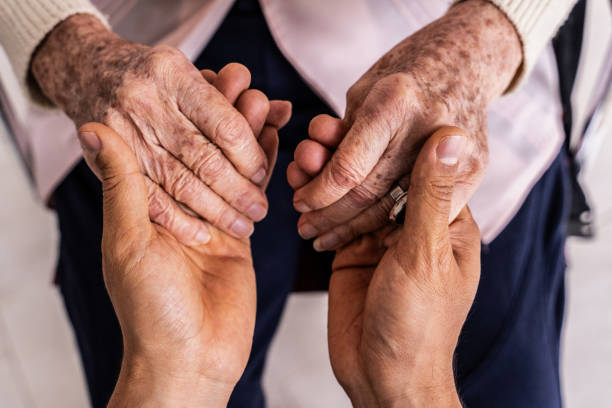As individuals age, their healthcare needs become more complex. They often require specialized attention to manage chronic illnesses and alleviate discomfort. Palliative care plays a crucial role in ensuring that seniors receive compassionate and holistic support while remaining in the comfort of their homes.
Unlike curative treatments, palliative care focuses on improving quality of life, easing pain, and addressing emotional, psychological, and spiritual concerns. For seniors and their families, this approach provides dignity, personalized care, and relief from distressing symptoms, making it a vital component of home-based healthcare.
Contents
Understanding Palliative Care for Seniors

Palliative care is a specialized branch of medicine that prioritizes comfort, symptom management, and emotional well-being for individuals with serious or life-limiting illnesses. It is not limited to end-of-life care; rather, it can be introduced at any stage of an illness alongside curative treatments. For seniors, this means they can receive palliative care while managing chronic conditions such as heart disease, cancer, dementia, or respiratory illnesses.
One of the distinguishing features of palliative care is its patient-centered approach. A multidisciplinary team—including doctors, nurses, social workers, and therapists—works closely with the seniors and their families to create a tailored care plan. This ensures that physical symptoms like pain, breathlessness, fatigue, and nausea are effectively managed while also addressing emotional and mental health needs.
The Benefits of Home-Based Palliative Care
For many seniors, home is a place of familiarity, comfort, and emotional security. Receiving palliative care at home offers several advantages over institutional settings such as hospitals or nursing facilities.
1. Pain and Symptom Management
Chronic pain, fatigue, nausea, and difficulty breathing are common challenges faced by seniors with serious illnesses. Palliative care teams use a combination of medications, physical therapy, and alternative treatments to ease discomfort and enhance mobility. Unlike traditional hospital settings, home-based care allows for personalized pain management strategies that are continuously adjusted based on the senior’s evolving needs.
2. Emotional and Psychological Support
Serious illnesses often take an emotional toll on seniors and their loved ones. Feelings of anxiety, depression, and fear about the future are common. Palliative care professionals offer counseling, emotional support, and coping strategies to help seniors maintain a sense of peace and mental well-being. Family members also benefit from guidance on how to provide emotional support and manage stress related to caregiving.
3. Maintaining Independence and Dignity
One of the most significant concerns for seniors is the loss of independence. Home-based palliative care allows them to retain a sense of control over their daily lives. By making necessary adjustments such as installing mobility aids, modifying home environments, and offering assistance with daily activities, seniors can continue living as independently as possible while receiving necessary medical care.
4. Support for Family Caregivers
Caring for an elderly loved one with a serious illness can be physically and emotionally demanding. Palliative care teams provide education, respite care, and practical strategies to help family caregivers manage their responsibilities effectively. This support ensures that caregivers can balance their personal lives while providing high-quality care for their loved ones.
5. Coordination of Medical Services
Seniors often require multiple healthcare services, including visits from specialists, physical therapists, and home health aides. Palliative care professionals act as coordinators, ensuring that all aspects of care are seamlessly integrated. This reduces unnecessary hospital visits, prevents medical complications, and improves overall care quality.
Integrating Palliative Care into a Senior’s Routine
The transition to palliative care should be smooth and aligned with a senior’s lifestyle and medical needs. Open communication with healthcare providers is key to determining the right time to introduce palliative care. In many cases, it can begin as early as the initial diagnosis of a chronic or life-limiting illness.
To integrate palliative care effectively at home, the following steps are essential:
- Assessing Needs: A healthcare provider or palliative care specialist evaluates the senior’s medical condition, symptoms, and emotional well-being to develop a customized care plan.
- Creating a Comfortable Environment: Adjustments such as ergonomic furniture, pain-relief equipment, and safety modifications can enhance the senior’s comfort at home.
- Establishing a Support Network: Regular visits from healthcare providers, caregivers, and family members ensure that the senior’s needs are consistently met.
- Focusing on Holistic Well-Being: Encouraging engagement in meaningful activities, social interactions, and relaxation techniques contributes to a fulfilling life despite health challenges.
Addressing Common Misconceptions About Palliative Care
Despite its numerous benefits, palliative care is often misunderstood. One common misconception is that it is the same as hospice care. While hospice care is specifically for individuals nearing the end of life, palliative care can be provided at any stage of illness, including alongside treatments aimed at prolonging life.
Another misconception is that palliative care means giving up on treatment. In reality, it complements ongoing medical interventions by improving comfort and quality of life. Many seniors receiving palliative care continue to undergo treatments such as chemotherapy, dialysis, or rehabilitation.
Some families hesitate to seek palliative care due to concerns about costs. Fortunately, many health insurance plans, including Medicare and Medicaid, cover palliative care services, making them accessible to those who need them most.
The Future of Palliative Care for Seniors
As the global population ages, the demand for high-quality palliative care will continue to grow. Advances in technology, such as remote monitoring and telehealth services, are making it easier for seniors to receive expert care without leaving their homes. Additionally, increased awareness and advocacy efforts are helping to integrate palliative care into mainstream healthcare systems.
For seniors and their families, early access to palliative care can make a significant difference in their overall well-being. By prioritizing comfort, dignity, and personalized support, palliative care empowers seniors to live their later years with as much peace and fulfillment as possible.
Wrapping Up
Palliative care is a compassionate and holistic approach that enhances the comfort and quality of life for seniors living with serious illnesses. Focusing on pain management, emotional support, and personalized care at home, it allows seniors to maintain their independence and dignity. For families, it provides essential guidance and relief, ensuring that loved ones receive the best possible care in their final years. With continued advancements in healthcare and greater awareness, palliative care will remain a cornerstone of senior home care, offering hope, comfort, and dignity for those who need it most.

